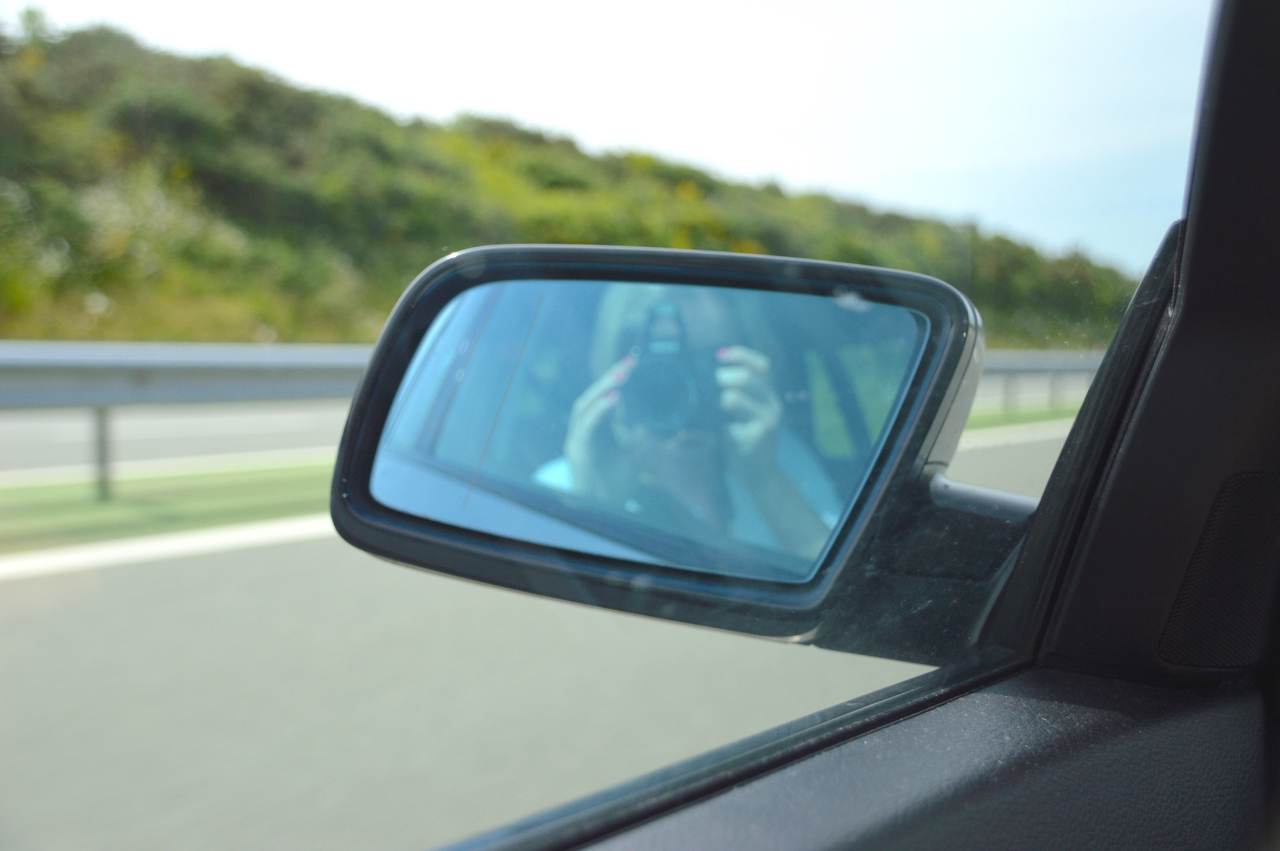Easy Guide to Driving in France
Driving in France need not be a daunting prospect. Here you will find practical advice and useful information ranging from “making sure you stay within the law” to the best rest areas on the main autoroutes”. We also offer a glossary of the main terms you need to know to ensure you get the right kind of fuel in your car and don’t get lost! Actually we really look forward to driving in France because the roads are so traffic free (except on the busiest days in season) and once you are off the autoroute there is so much beauty to be seen.
Practical Advice: This section is for the first timer with helpful hints on how to make your first drive in France a relaxing experience, even driving on the right hand side! For example making sure that you always have some cash ready for the autoroute tolls.
Preparing your car: There are things you need to remember before you leave, some are legal requirements, some just good advice.
Latest regulations for driving in France
If you are driving a car or riding a motorbike in France, the following changes have been in place since 2016:
- For people that have less than three years of experience, the alcohol limit is 0.2 grams per litre. For experienced drivers and motorcyclists (more than three years’ experience) the limit is 0.5 grams per litre. Both are lower than the UK limit of 0.8 grams per litre.
- All drivers and riders have been prohibited from wearing headsets and headphones whilst driving, be it for music purposes or for phone calls. However, this does exclude motorcycle helmets that have integrated systems.
- As of January 2016, motorcyclists are required to have reflective jackets to be worn in the event of a breakdown or an emergency.
- Paris has introduced a Low Emission Zone which this means that although diesel and petrol lorries and buses made before 1997 have already been banned in Paris, also from July 2016, petrol and diesel cars registered before 1997 will also be banned from 8am to 8pm on weekdays. Since 2020, only vehicles made in or after 2011 will be allowed.
- You now need a Crit’Air sticker displayed on your car, currently in use in Paris, Gironde/Bordeaux, Hérault/Montpelier, Lille, Lyon, Marseille, Strasbourg, Toulouse and Poitiers.
It costs €10.00 (April 2022) and car drivers face an on-the-spot fine of €68 if they don’t have one. Find out more and buy them on line here.
Satnav and speed camera alerts
Don’t ask us why, but you’re not allowed to carry or use a speed camera detector in France.
You could be fined up to €1,500 or even have your vehicle taken away.
The law was extended to cover satnav and any other GPS-based system in 2012.
If your satnav can show fixed speed cameras, then you’ll have to disable alerts before you drive in France. You may need to contact the satnav manufacturer for a software or database update to remove French camera data.
Handy hints on speed cameras: as in the UK, you will get a warning that there is a speed camera approaching, see images below. The warning sign will say ‘Controle Automatique’ and the speed camera is grey and not as noticeable as the ones in the UK.
Speed limits
Speed limits in France are determined by place, vehicle and by the weather. Motorways are well sign-posted for speed limits, so keep a look out.
- Built-up areas 31 mph (50 km/h)
- Outside built-up areas 55 mph (90 km/h)
- Urban motorways and dual carriageways separated by a central reservation 68 mph (110 km/h)
- Motorways 80 mph (130 km/h) ( a minimum speed of 50mph (80km/h) also applies)
Speed limits are reduced in wet weather and for inexperienced drivers with less than three years driving experience:
- Outside built-up areas 50 mph (80 km/h)
- Urban motorways and dual carriageways separated by a central reservation 62 mph (100 km/h)
- Motorways 68 mph (110 km/h)
If you get stopped:
We’ve spent many years holidaying in France and travelling there on business and never used to be stopped by the Gendarmerie. But in recent years there has been a marked increase in random roadside checks. So our advice is make sure your vehicle is legal, that you have all the necessary papers and all those little extras you are expected to carry on the continent such as spare light bulbs, warning triangle…. If in doubt, refer to our advice on “preparing your car” and “rules of the road“.
If you are stopped you will probably be asked for “vos papiers” which usually means the car registration document, your insurance document and your driving license (permis de conduire). Bizarrely, although you will probably be spoken to only in French, it seems that presenting English documents is perfectly acceptable!
If you break down
French motorways are privately managed, so if you break down you are not allowed to request your own breakdown company to come out to you if you are on the motorway.
If you break down you should use the orange emergency telephones which are situated every 2km along main roads and motorways to call the police or the official breakdown service operating in that area. Alternatively, if no orange telephone is available motorists should call the emergency services be dialling 112.
You will be towed to a safe designated area where you can then be met by your chosen breakdown provider.
Charges for assistance on a motorway are fixed by the Government and are reviewed and revised each year.
The cost for recovery, correct as of June 2021, is:
€126.93 for vehicles 1.8 tonnes or under or €190.40 between the hours of 18:00 and 08:00, weekends and bank holidays
€156.95 for vehicles 3.5t or under or €235.432 between the hours of 18:00 and 08:00, weekends and bank holidays
For vehicles over 3.5t, the cost is at the towing service’s discretion
France for Families has used Breakdown Direct for the last five years, we have found them to be good value for money and have good customer service, you can contact them and buy online here.
Priorité à Droite: This famous feature of French driving etiquette still causes confusion today! Priorité a Droite info here.
Route Planning: Advice on route planning with the best maps, traffic advice and the best rest areas on the main autoroutes.
Glossary (Driving):
Aire – Motorway service station
Aire de Repos – Rest area (WC only)
Allumez vos feux – Switch on headlights
Autre directions – Other directions
Bouchon – traffic jam
Cèdez le passage – Give way
Centre ville – Town centre
L’essence – Petrol
Faites le plein – please fill the tank
Gazole – Diesel fuel
Gendarmerie – Police station
Interdit aux piètons – No pedestrians
L’huile – Oil
Permis de Conduire – Driving License
Rappel – Reminder
Route barrèe – Road closed
Sans plomb – unleaded petrol
Serrez à droite – Keep right
Serrez à gauche – Keep left
Sortie – Exit
Suivre – Follow
Toutes directions – All directions
Toute Droit – Straight on
Travaux – Road works
Vous n’avez pas la priorité – You don’t have priority (usually a reminder at the entry to a roundabout that you must give way to traffic on the roundabout)
Travel Sickness Advice: We would recommend to make sure your children aren’t too tired as this always seems to bring on travel sickness. Keep a plastic container accessible just in case
Read more travel in France:




